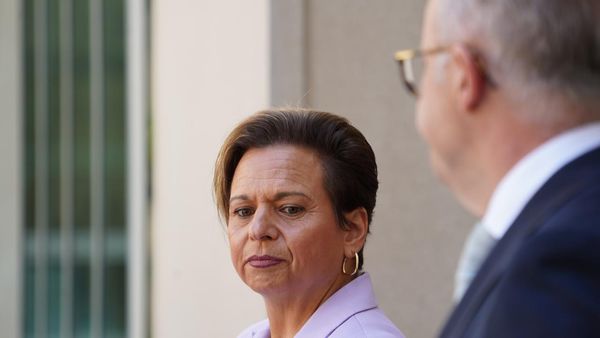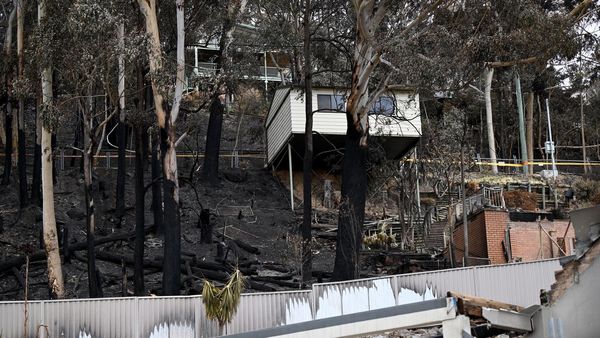Many North East doctors, nurses and other medical professionals are "looking long and hard at their futures" in the NHS according to senior figures in the health service in our area.
With the impact of Covid-19 continuing to be felt in high sickness rates and serious levels of fatigue across hospitals and community care settings like GP surgeries, a meeting of the Governing Body of the Newcastle Gateshead CCG reiterated the call for vital workforce planning from central Government that has been heard frequently from across the NHS in recent months. The CCG heard reports showing that the impact of Covid-19 meant that a series of targets - for aspects of care including A&E, cancer referral and waiting list times - were still not being met.
Speaking about the worrying picture, Bill Cunliffe - the secondary care clinician on the governing body and a retired surgeon - said he felt the pressure NHS staff were under would see many quit the health service. He added this would make the already difficult challenge of meeting the Government's Elective Recovery Plan (ERP) targets almost impossible.
Read more: Government's 3% NHS pay rise offer 'will go down like a lead balloon' say unions
Mr Cunliffe's comments came the same day that the Government announced plans to ditch free car parking for NHS workers that had existed during the pandemic. This has been described as a "slap in the face" by campaigners.
The ERP was set out in early February and explains how the Government and NHS England want hospitals and health professionals generally to bring down the waiting lists which have spiralled during the pandemic. There are over 90,000 people waiting at the Newcastle Hospitals NHS Trust and more than 10,000 at the smaller Gateshead Health NHS Trust which runs the QE.
A key focus of the ERP is that elective capacity across the country should be 25% bigger by 2024/2025 and that extremely long waits of over a year and over two years would be eliminated by 2025 and summer 2022 respectively.
Mr Cunliffe told the meeting he was concerned for the future.
"This fatigue has been clear for all medics - doctors, junior and senior nurses, everyone," he said. "I think people are looking long and hard at their futures in the health service. And this will, of course, have an impact on the Elective Recovery Plan - because people are not going to be wanting to work waiting list initiatives at evenings and weekend when they're already tired and want to spend time with their families. Even by my particularly pessimistic standards I can't see there's any chance of reaching the Elective Recovery Plan goals we are being asked to achieve."
Bill said this would add to the significant pressure on NHS staffing, and said the Government had missed opportunities to solve this problem for many years. He said: "The answer was there 10 years ago. We had the opportunity to increase the number of doctors and we changed so we didn't fund nurses to study."
However, he explained it was vital that patients were not reluctant to seek medical help for any issues and did not delay coming forward, adding: "If someone has a need to be dealt with, they should be seen."
Joe Corrigan, the CCG's finance director, added "I think it was you who said Bill this wonderful analogy: We have just asked colleagues to run a very hard mile, and now we're asking them to turn around and run back. I think the challenges NHS staff face are going to get even greater I am sure."
The BA.2 Omicron wave has caused "significant" pressure on staffing at hospitals across region, the meeting heard, and this impact is still being felt. Julia Young, the CCG's Director of Nursing, Patient Safety and Quality, added: "NHS sickness and absence pressures nationally reflect what we have seen here.
"We have still got significant workforce pressures - and that's both with reference to the Covid issues we are seeing at the moment along with mental health issues and staff tiredness. Sickness rates have been a real challenge. Workforce is a really specific challenge we face and we need a workforce plan for both health and social care. We are waiting to see if that will be forthcoming. We need to see what we can do to make careers in health and social care more attractive."
National bodies including the British Medical Association have been calling for the Government to publish a long-promised workforce plan as soon as possible, while senior leaders at hospital trusts including Dame Jackie Daniel in Newcastle have repeatedly spoken of the need for better central planning so the NHS can meet the needs of the growing UK population in the years to come.
Last month, the House of Lords passed an amendment to the in-the-works Health and Social Care Bill that would mandate regular workforce planning - supported by groups including NHS Providers, which represents groups including hospital trusts. It would see the projected staffing need compared to training levels over five, ten and 20 year periods.
It is yet to be seen if the House of Commons will retain the amendment. The Government has always maintained that it is committed to supporting the NHS workforce.
In a keynote speech setting out his plans to reform the NHS earlier in March, Health Secretary Sajid Javid said: "On my ‘Road to Recovery’ tour, the biggest honour of all was meeting our phenomenal health and care staff. I was blown away by their professionalism and their dedication.
"I know the pressure of the pandemic has taken its toll. Of course it has. It would be wrong to pretend that everything was perfect before the pandemic – just as it would be wrong to pretend that everything will be better once the pandemic becomes endemic.
"But having more colleagues will be essential: we have 41,000 more NHS workers than this time last year, including some 11,000 more nurses and over 4,000 more doctors. And yesterday we published our delivery update on our progress towards our manifesto commitment for 50,000 more nurses. Already, since September 2019 there are now over 27,000 more nurses working in the NHS.
"But we also need - and we will have - a proper long-term workforce plan, so we can build our workforce and skills, and take tougher action on things like racism, sexism and bullying."







